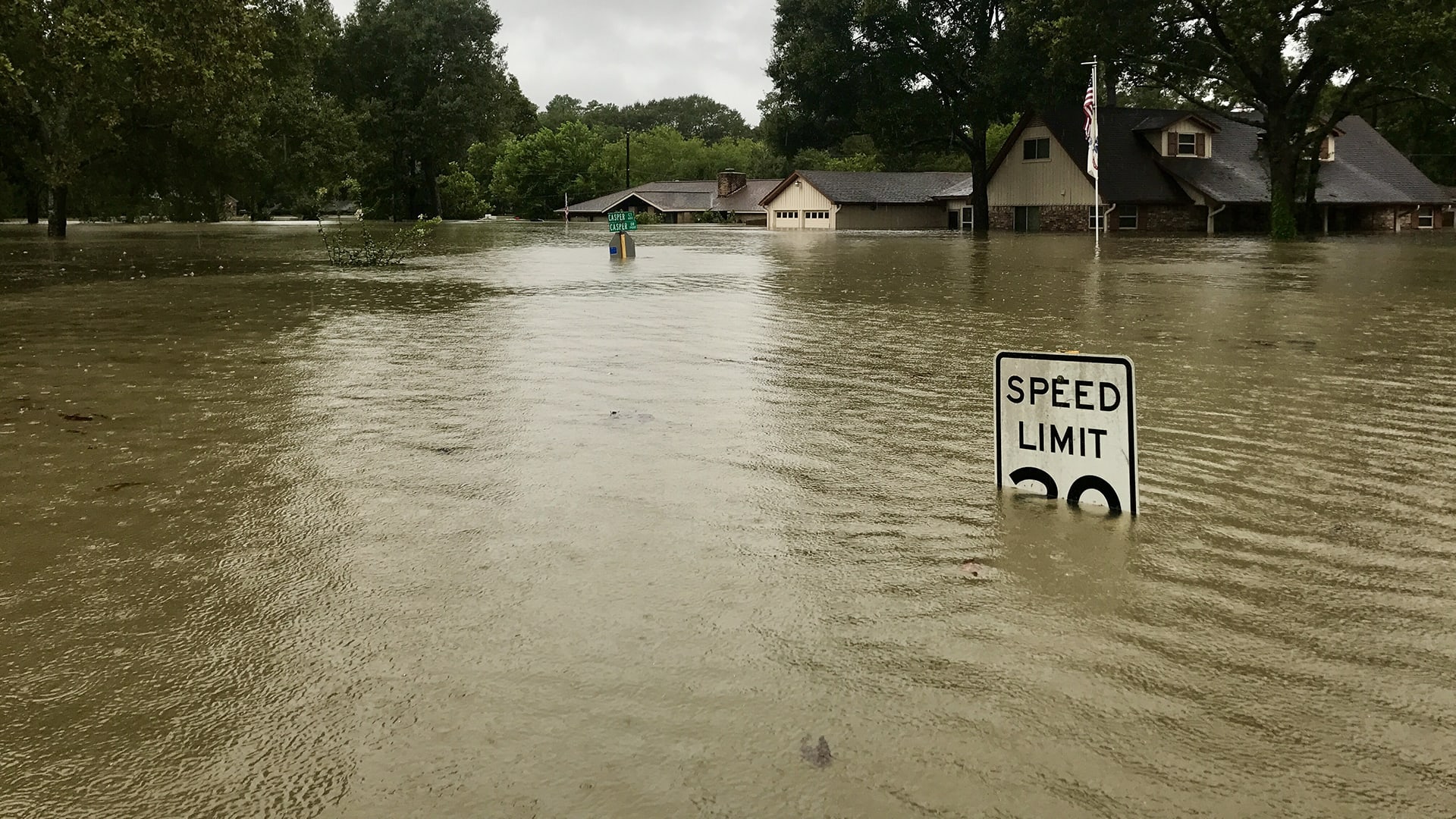Scroll for prep

Please wait…
This video is having trouble loading. You may have lost your Internet connection.
Step 1: Click to Reload this page
Step 2: Click to
Try our other video player
Step 3: Contact your teacher if trouble persists.
Or,
dismiss this message.
CONVERSEMOS (1 de 2):
¿De dónde viene el agua de un huracán?
CONVERSEMOS (2 de 2):
¿Por qué llueve tanto cuando hay un huracán?

Please wait…
This video is having trouble loading. You may have lost your Internet connection.
Step 1: Click to Reload this page
Step 2: Click to
Try our other video player
Step 3: Contact your teacher if trouble persists.
Or,
dismiss this message.
CONVERSEMOS:
¿Por qué crees que ciertas áreas de Nueva Orleáns se inundaron pero otras no?

Please wait…
This video is having trouble loading. You may have lost your Internet connection.
Step 1: Click to Reload this page
Step 2: Click to
Try our other video player
Step 3: Contact your teacher if trouble persists.
Or,
dismiss this message.

Please wait…
This video is having trouble loading. You may have lost your Internet connection.
Step 1: Click to Reload this page
Step 2: Click to
Try our other video player
Step 3: Contact your teacher if trouble persists.
Or,
dismiss this message.

Please wait…
This video is having trouble loading. You may have lost your Internet connection.
Step 1: Click to Reload this page
Step 2: Click to
Try our other video player
Step 3: Contact your teacher if trouble persists.
Or,
dismiss this message.
Paso
01/23
01/23
Si estás en una clase, forma un equipo de cuatro personas y
luego elijan a un líder del equipo.
luego elijan a un líder del equipo.

Please wait…
This video is having trouble loading. You may have lost your Internet connection.
Step 1: Click to Reload this page
Step 2: Click to
Try our other video player
Step 3: Contact your teacher if trouble persists.
Or,
dismiss this message.
Paso
02/23
02/23
Obtén estos materiales. Recibirás otros más adelante, pero
cada equipo necesita estás cosas.
cada equipo necesita estás cosas.

Please wait…
This video is having trouble loading. You may have lost your Internet connection.
Step 1: Click to Reload this page
Step 2: Click to
Try our other video player
Step 3: Contact your teacher if trouble persists.
Or,
dismiss this message.
Paso
03/23
03/23
Cada persona en el equipo será un tipo diferente de ingeniero/a
y necesitará una hoja. Tómense 15 segundos para elegir qué
ingeniero/a serán y obtengan la hoja correspondiente.
y necesitará una hoja. Tómense 15 segundos para elegir qué
ingeniero/a serán y obtengan la hoja correspondiente.

Please wait…
This video is having trouble loading. You may have lost your Internet connection.
Step 1: Click to Reload this page
Step 2: Click to
Try our other video player
Step 3: Contact your teacher if trouble persists.
Or,
dismiss this message.
Paso
04/23
04/23
En el mapa, encuentra las inundaciones causadas por la
marejada ciclónica del océano. Pon una pequeña X roja al
lado de cada edificio histórico inundado por la marejada ciclónica.
marejada ciclónica del océano. Pon una pequeña X roja al
lado de cada edificio histórico inundado por la marejada ciclónica.

Please wait…
This video is having trouble loading. You may have lost your Internet connection.
Step 1: Click to Reload this page
Step 2: Click to
Try our other video player
Step 3: Contact your teacher if trouble persists.
Or,
dismiss this message.
Paso
05/23
05/23
En tu mapa, encuentra las inundaciones causadas por el río.
Pon una pequeña X azul al lado de cada edificio histórico que
quedó inundado cuando se desbordó el río.
Pon una pequeña X azul al lado de cada edificio histórico que
quedó inundado cuando se desbordó el río.

Please wait…
This video is having trouble loading. You may have lost your Internet connection.
Step 1: Click to Reload this page
Step 2: Click to
Try our other video player
Step 3: Contact your teacher if trouble persists.
Or,
dismiss this message.
Paso
06/23
06/23
Los edificios históricos que quedaron inundados a causa de
las tormentas y del río deben de tener una X roja y una X azul.
Intercambia tu hoja de trabajo con alguien y revisen su trabajo.
las tormentas y del río deben de tener una X roja y una X azul.
Intercambia tu hoja de trabajo con alguien y revisen su trabajo.

Please wait…
This video is having trouble loading. You may have lost your Internet connection.
Step 1: Click to Reload this page
Step 2: Click to
Try our other video player
Step 3: Contact your teacher if trouble persists.
Or,
dismiss this message.
Paso
07/23
07/23
Líder de equipo: divide esta hoja en cuatro partes cortando a lo
largo de las líneas gruesas. Ingenieros/as: tomen la parte que les
pertenece.
largo de las líneas gruesas. Ingenieros/as: tomen la parte que les
pertenece.

Please wait…
This video is having trouble loading. You may have lost your Internet connection.
Step 1: Click to Reload this page
Step 2: Click to
Try our other video player
Step 3: Contact your teacher if trouble persists.
Or,
dismiss this message.
Paso
08/23
08/23
Cada ingeniero debe de leer sobre su solución a las inundaciones
en su hoja de Ingeniería. Luego, sigue las instrucciones del uno al
cuatro en tu hoja.
en su hoja de Ingeniería. Luego, sigue las instrucciones del uno al
cuatro en tu hoja.

Please wait…
This video is having trouble loading. You may have lost your Internet connection.
Step 1: Click to Reload this page
Step 2: Click to
Try our other video player
Step 3: Contact your teacher if trouble persists.
Or,
dismiss this message.
Paso
09/23
09/23
Consigue estos otros materiales. Tu equipo necesita cada una
de estas cosas.
de estas cosas.

Please wait…
This video is having trouble loading. You may have lost your Internet connection.
Step 1: Click to Reload this page
Step 2: Click to
Try our other video player
Step 3: Contact your teacher if trouble persists.
Or,
dismiss this message.
Paso
10/23
10/23
Póngale un nombre a su empresa de ingeniería y escríbalo en la
pregunta número uno en esta hoja.
pregunta número uno en esta hoja.

Please wait…
This video is having trouble loading. You may have lost your Internet connection.
Step 1: Click to Reload this page
Step 2: Click to
Try our other video player
Step 3: Contact your teacher if trouble persists.
Or,
dismiss this message.
Paso
11/23
11/23
El ayuntamiento decidió que tienen un presupuesto de $1,000,000.
Escriban este número en la pregunta número dos.
Escriban este número en la pregunta número dos.

Please wait…
This video is having trouble loading. You may have lost your Internet connection.
Step 1: Click to Reload this page
Step 2: Click to
Try our other video player
Step 3: Contact your teacher if trouble persists.
Or,
dismiss this message.
Paso
12/23
12/23
Pongan sus mapas en la mesa para que todos los puedan ver.
Y asegúrense de que sus soluciones para prevenir inundaciones
estén donde las quieren.
Y asegúrense de que sus soluciones para prevenir inundaciones
estén donde las quieren.

Please wait…
This video is having trouble loading. You may have lost your Internet connection.
Step 1: Click to Reload this page
Step 2: Click to
Try our other video player
Step 3: Contact your teacher if trouble persists.
Or,
dismiss this message.
Paso
13/23
13/23
Ingeniero de rompeolas: cuéntanos sobre tus paredes.

Please wait…
This video is having trouble loading. You may have lost your Internet connection.
Step 1: Click to Reload this page
Step 2: Click to
Try our other video player
Step 3: Contact your teacher if trouble persists.
Or,
dismiss this message.
Paso
14/23
14/23
Contesta la pregunta número tres en tu hoja de trabajo. (Anota el
número de rompeolas que el Ingeniero de rompeolas tiene en su
mapa. Luego calcula el costo total y escribe la respuesta.)
número de rompeolas que el Ingeniero de rompeolas tiene en su
mapa. Luego calcula el costo total y escribe la respuesta.)

Please wait…
This video is having trouble loading. You may have lost your Internet connection.
Step 1: Click to Reload this page
Step 2: Click to
Try our other video player
Step 3: Contact your teacher if trouble persists.
Or,
dismiss this message.
Paso
15/23
15/23
Ingeniero ambiental: Cuéntale al equipo sobre los humedales.
Todos: escriban el número y el costo de los humedales en la
pregunta número cuatro en su hoja de trabajo.
Todos: escriban el número y el costo de los humedales en la
pregunta número cuatro en su hoja de trabajo.

Please wait…
This video is having trouble loading. You may have lost your Internet connection.
Step 1: Click to Reload this page
Step 2: Click to
Try our other video player
Step 3: Contact your teacher if trouble persists.
Or,
dismiss this message.
Paso
16/23
16/23
Ingeniero de diques: cuéntale al equipo sobre los diques usando
estas oraciones. Todos: escriban el número y el costo de los diques
en la pregunta número cinco en su hoja de trabajo.
estas oraciones. Todos: escriban el número y el costo de los diques
en la pregunta número cinco en su hoja de trabajo.

Please wait…
This video is having trouble loading. You may have lost your Internet connection.
Step 1: Click to Reload this page
Step 2: Click to
Try our other video player
Step 3: Contact your teacher if trouble persists.
Or,
dismiss this message.
Paso
17/23
17/23
Ingeniero estructural: cuéntales sobre cómo poner edificios sobre
pilotes. Todos: escriban el número y el costo de poner edificios
sobre pilotes en la pregunta número seis en su hoja de trabajo.
pilotes. Todos: escriban el número y el costo de poner edificios
sobre pilotes en la pregunta número seis en su hoja de trabajo.

Please wait…
This video is having trouble loading. You may have lost your Internet connection.
Step 1: Click to Reload this page
Step 2: Click to
Try our other video player
Step 3: Contact your teacher if trouble persists.
Or,
dismiss this message.
Paso
18/23
18/23
Suma los costos de todas las soluciones. Luego escribe la
respuesta en la pregunta número siete.
respuesta en la pregunta número siete.

Please wait…
This video is having trouble loading. You may have lost your Internet connection.
Step 1: Click to Reload this page
Step 2: Click to
Try our other video player
Step 3: Contact your teacher if trouble persists.
Or,
dismiss this message.
Paso
19/23
19/23
Platiquen sobre cómo podrían gastar menos dinero y aún así
salvar todos los edificios históricos. Escriban sus ideas de cómo
ahorrar dinero en la pregunta número ocho.
salvar todos los edificios históricos. Escriban sus ideas de cómo
ahorrar dinero en la pregunta número ocho.

Please wait…
This video is having trouble loading. You may have lost your Internet connection.
Step 1: Click to Reload this page
Step 2: Click to
Try our other video player
Step 3: Contact your teacher if trouble persists.
Or,
dismiss this message.
Paso
19b/23
19b/23
Aquí tienen algunas pistas para la pregunta número ocho.

Please wait…
This video is having trouble loading. You may have lost your Internet connection.
Step 1: Click to Reload this page
Step 2: Click to
Try our other video player
Step 3: Contact your teacher if trouble persists.
Or,
dismiss this message.
Paso
20/23
20/23
Pongan las imágenes recortadas en el mapa del Plan Final.
Muévanlas hasta tener un plan que les guste.
Muévanlas hasta tener un plan que les guste.

Please wait…
This video is having trouble loading. You may have lost your Internet connection.
Step 1: Click to Reload this page
Step 2: Click to
Try our other video player
Step 3: Contact your teacher if trouble persists.
Or,
dismiss this message.
Paso
21/23
21/23
Usen círculos adhesivos para pegar las imágenes recortadas
al mapa, de esta manera. Luego, el líder del equipo debe
completar la hoja del plan final, con la ayuda de su equipo.
al mapa, de esta manera. Luego, el líder del equipo debe
completar la hoja del plan final, con la ayuda de su equipo.

Please wait…
This video is having trouble loading. You may have lost your Internet connection.
Step 1: Click to Reload this page
Step 2: Click to
Try our other video player
Step 3: Contact your teacher if trouble persists.
Or,
dismiss this message.
Paso
22/23
22/23
Ve los planes de los demás.

Please wait…
This video is having trouble loading. You may have lost your Internet connection.
Step 1: Click to Reload this page
Step 2: Click to
Try our other video player
Step 3: Contact your teacher if trouble persists.
Or,
dismiss this message.
Paso
23/23
23/23
Ahora platiquen sobre sus respuestas a estas preguntas.
Después, vean el último video.
Después, vean el último video.

Please wait…
This video is having trouble loading. You may have lost your Internet connection.
Step 1: Click to Reload this page
Step 2: Click to
Try our other video player
Step 3: Contact your teacher if trouble persists.
Or,
dismiss this message.

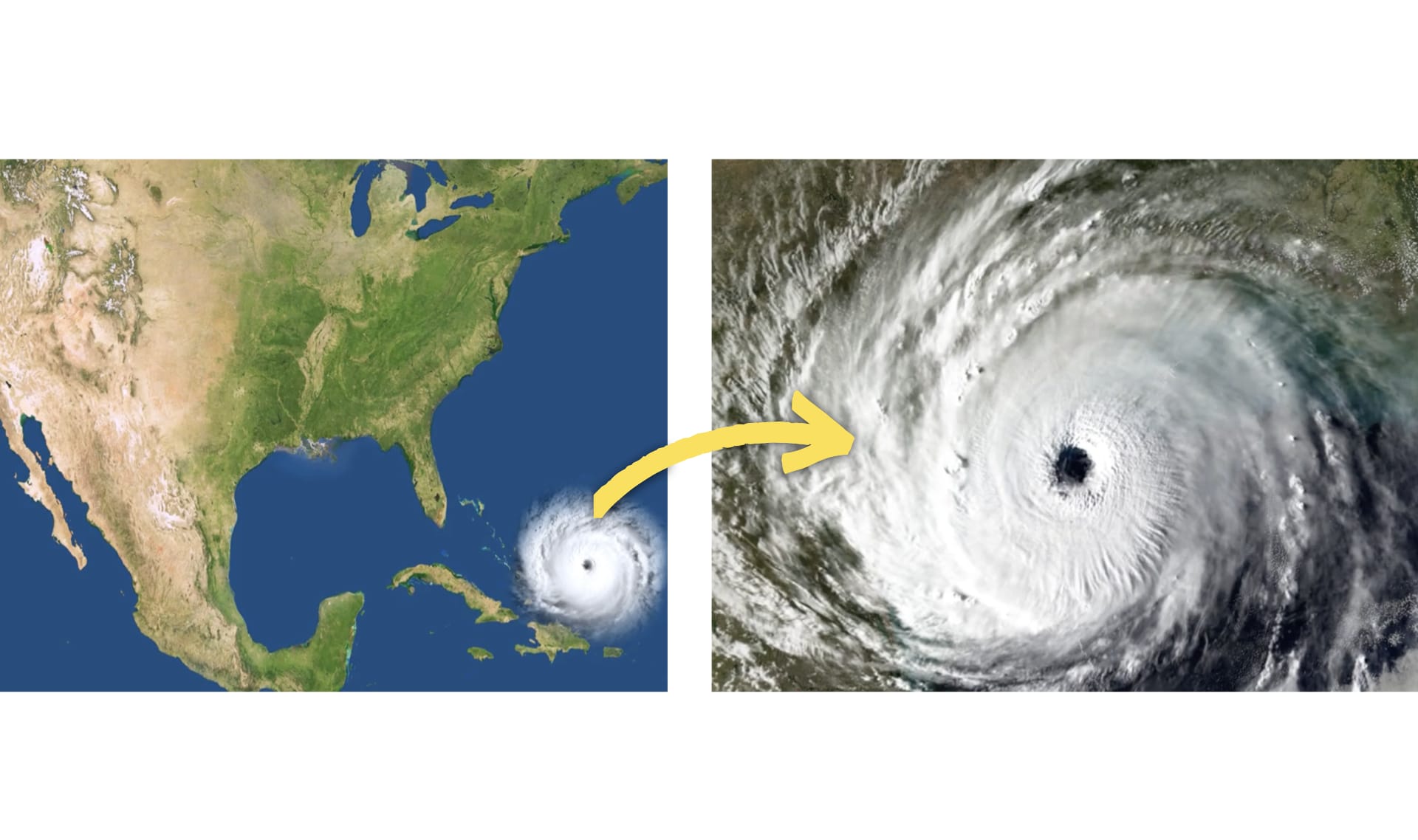
huracán
1 de 13
una tormenta de viento que comienza como una tormenta pequeña en el océano
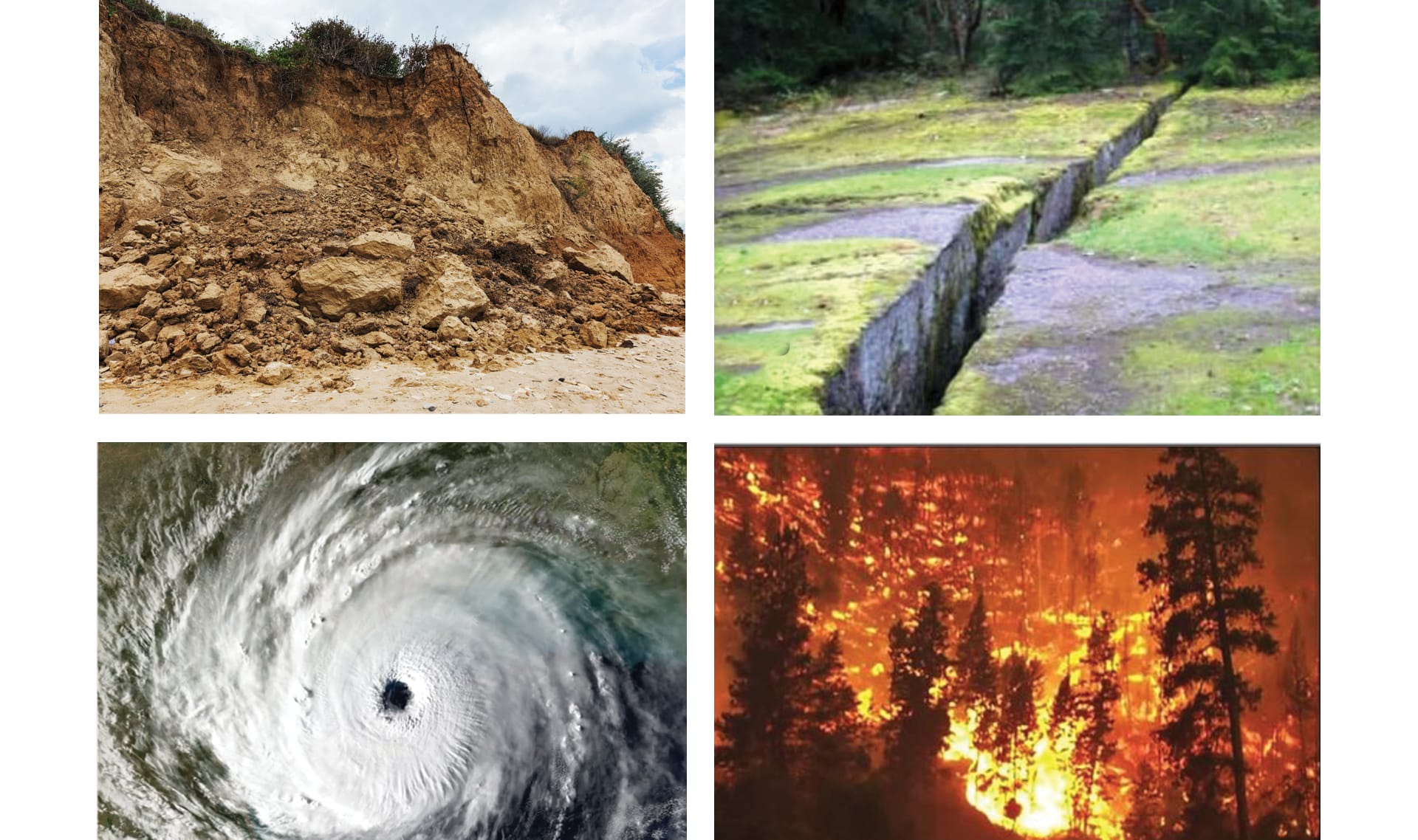
riesgo natural
2 de 13
algo que sucede en la naturaleza (como un derrumbe, un terremoto, un huracán, o un incendio forestal) que es peligroso para los seres vivos
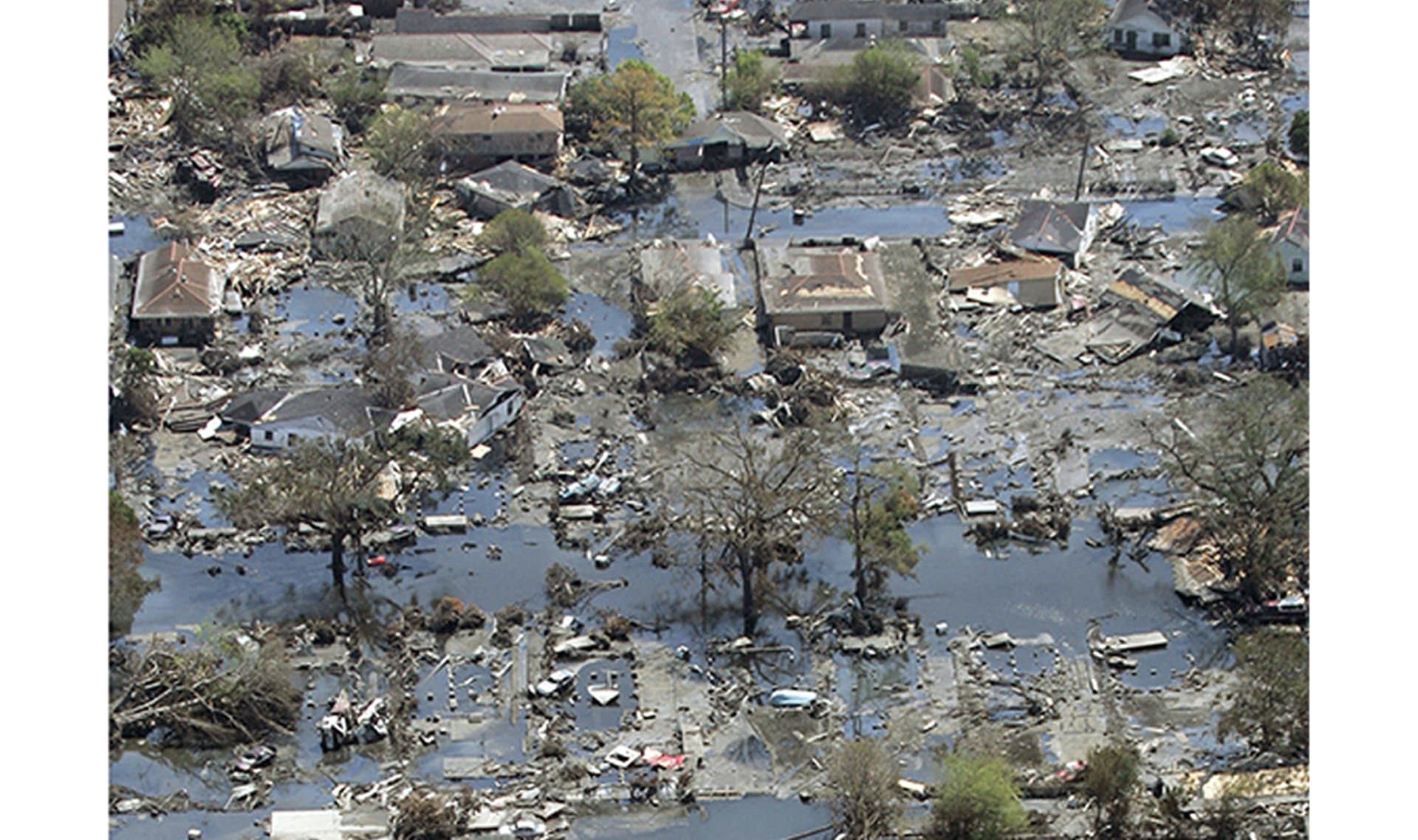
desastre natural
3 de 13
los efectos nocivos de un riesgo natural (como un derrumbe, un terremoto, un huracán, o un incendio forestal) para los humanos

Please wait…
This video is having trouble loading. You may have lost your Internet connection.
Step 1: Click to Reload this page
Step 2: Click to
Try our other video player
Step 3: Contact your teacher if trouble persists.
Or,
dismiss this message.
marejada ciclónica
4 de 13
cuando los niveles del agua aumentan rápidamente debido a una tormenta
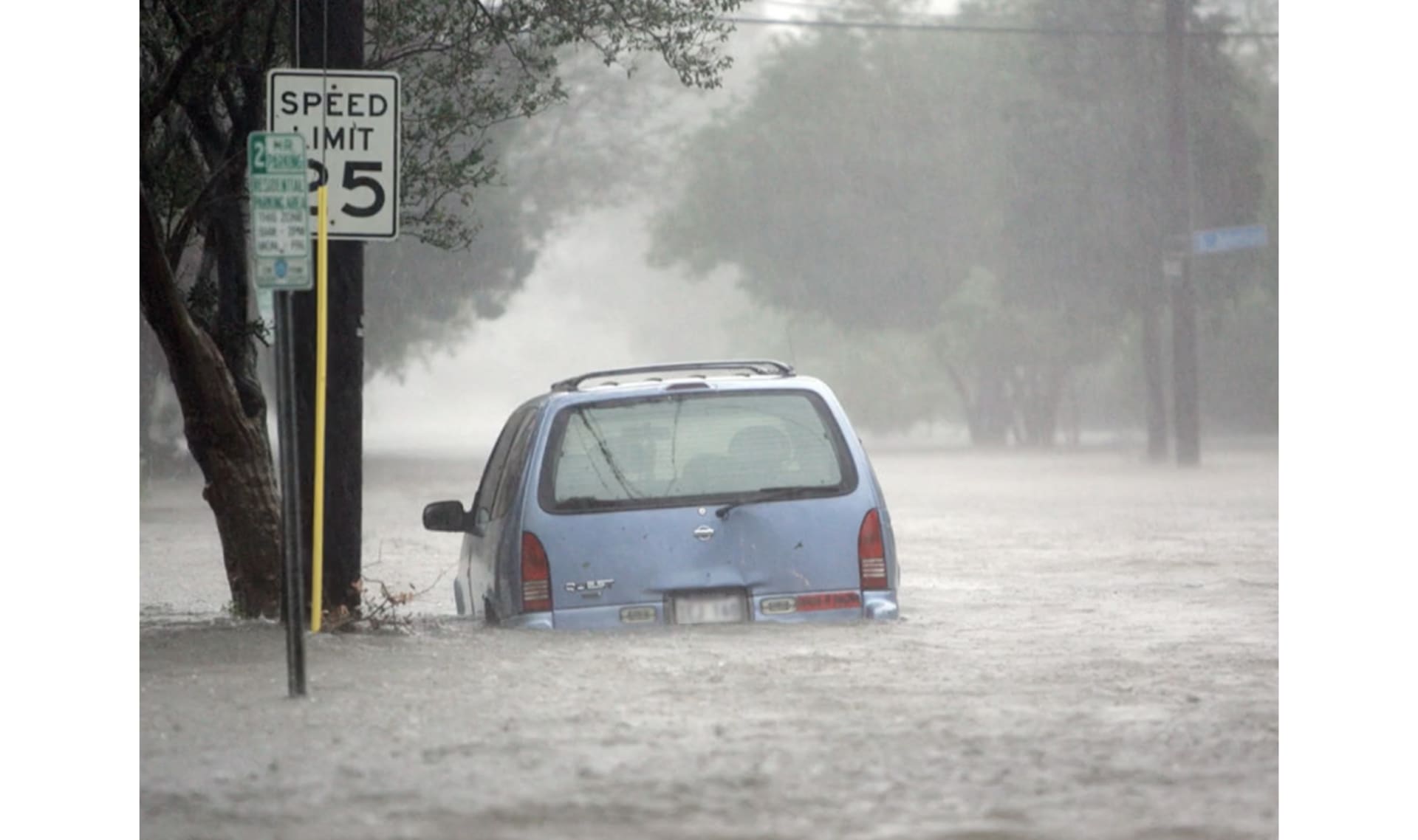
inundanción
5 de 13
cuando un área se llena de agua, un desbordamiento de agua
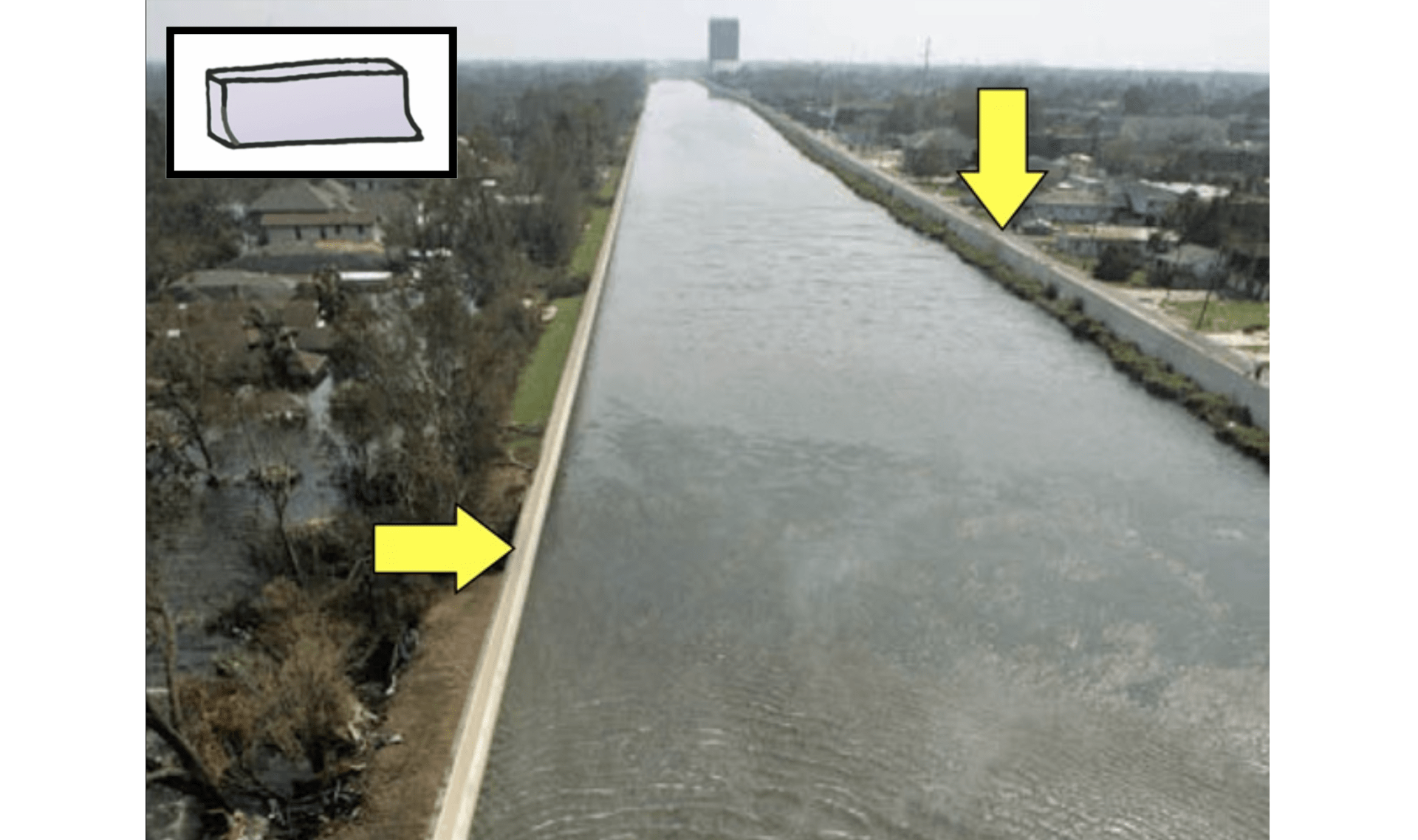
dique
6 de 13
una barrera construida para prevenir que un río se desborde
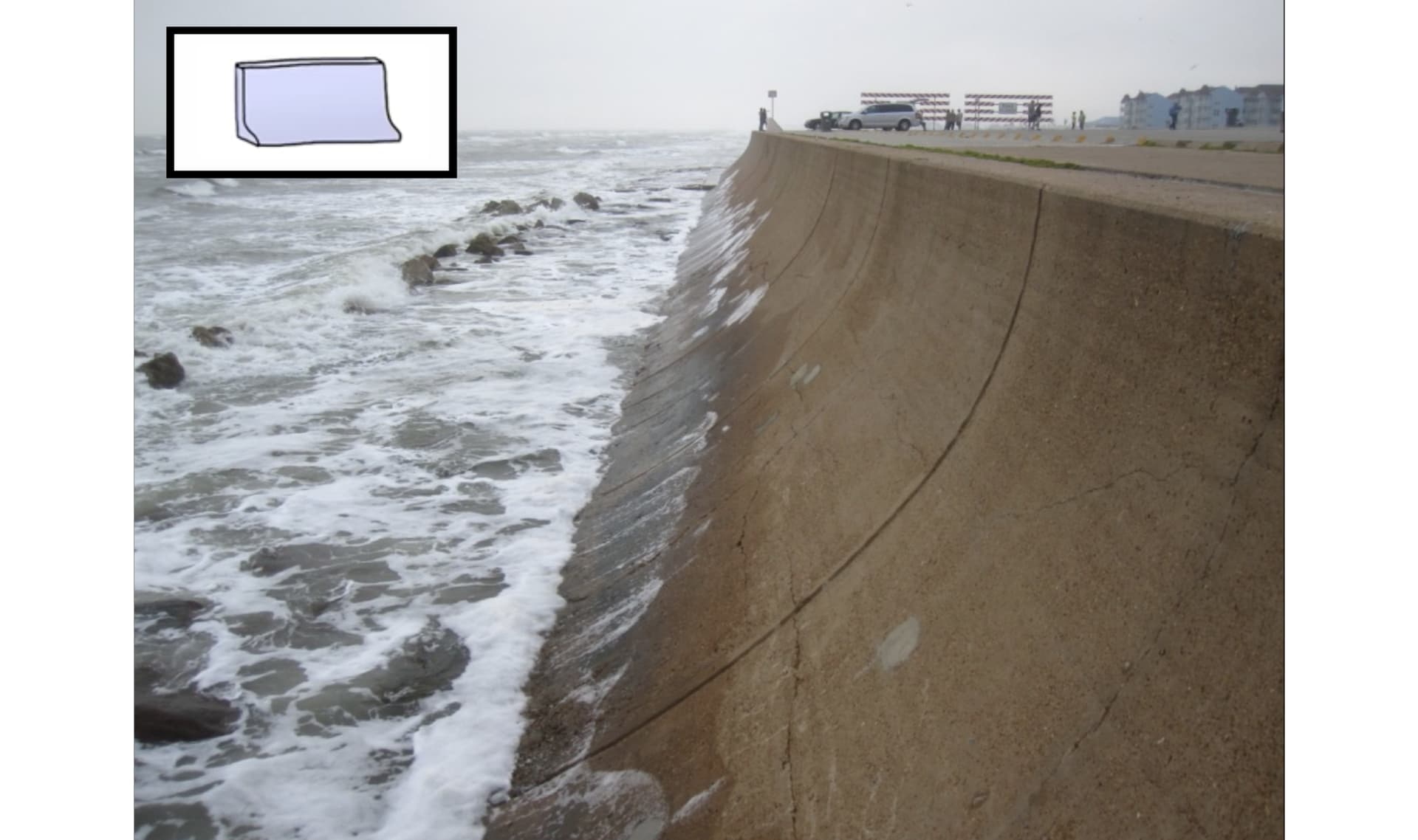
rompeolas
7 de 13
una barrera construida para prevenir el desbordamiento de agua de una masa de agua grande (como el océano)

humedal
8 de 13
hábitat donde la tierra está cubierta por agua poco profunda, por ejemplo, un pantano

Please wait…
This video is having trouble loading. You may have lost your Internet connection.
Step 1: Click to Reload this page
Step 2: Click to
Try our other video player
Step 3: Contact your teacher if trouble persists.
Or,
dismiss this message.
elevación
9 de 13
lo alto que es algo

Please wait…
This video is having trouble loading. You may have lost your Internet connection.
Step 1: Click to Reload this page
Step 2: Click to
Try our other video player
Step 3: Contact your teacher if trouble persists.
Or,
dismiss this message.
evaporación
10 de 13
cuando un líquido se convierte en un gas

ingeniero/a
11 de 13
una persona que utiliza la ciencia para diseñar soluciones a ciertos problemas

limitación
12 de 13
algo que limita lo que puedes hacer

presupuesto
13 de 13
la cantidad de dinero que puedes usar o gastar en algo
